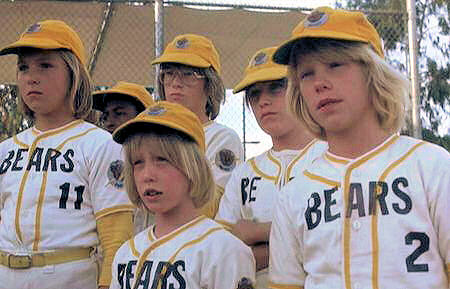I was recently invited for an interview by Brittney Breakey over at AUTHOR TURF. Brittney has really accomplished a lot with her site. It’s worth checking out. She’s recently interviewed Holly Goldberg Sloan, Sally Nicholls, Gennifer Choldenko, Jo Knowles, Kathryn Erskine . . . and my great pal, Lewis Buzbee.
For me, that’s a double-edged sword. I’ll be honest, I’ve always hoped to be the kind of person who somebody wanted to interview. It’s an incredible compliment. And a true honor.
In my career, some of the first work I ever did was interviews of authors for promotional brochures. I think Ann McGovern was my first interview, back when I worked as a junior copywriter for Scholastic. Or it might have been Johanna Hurwitz. I don’t think I saved them. This would have been in 1985, I guess. Life went on and I’ve interviewed some talented authors and illustrators over the years.
You’d think I’d have learned some things along the line, but my basic feeling is usually one of disorientation, a sense that I have no idea what I’m doing, most likely saying the wrong things, awkwardly. Oh well.
I do have lucid moments, times when I think, “Okay, not terrible.” But in general I can’t read things like this without wincing, without twitching and blinking too often. I don’t know, it’s weird. I try to be honest, authentic, and hope for the best.
Below, you’ll find a brief excerpt of a much longer interview. Click here for the whole shebang.
What’s the worst thing you did as a kid?
It’s interesting you ask this, because I recently wrote about it in my journal. A theme that I’m exploring in the book I currently writing (or should be writing), which is a quasi-sequel to BYSTANDER. I have superstitions about talking about books before they are finished, but I’ll say this: In the summer between 7th and 8th grade, a girl in my homeroom died unexpectedly. I didn’t know her well, and wouldn’t call her a friend. When I first heard about Barbara’s death, I was with a bunch of friends –- I can picture it vividly, a bunch of us lounging around — and I said something dumb, snarky, immature. Of course, the death of a peer was completely new to me, a big deal, and I didn’t know how to react. I still feel a sense of shame about it, across these forty years, that one dumb thing I said that no one else even noticed. I’ve been reflecting a lot about identity lately, the idea of self not as a revelation, but as a made thing. Something you earn. Bryan Stevenson gave an incredible presentation for TED Talks -– everyone in America should Youtube it -– and he said, “I’ve come to understand and to believe that each of us is more than the worst thing we’ve ever done.” That’s a huge, complicated, controversial idea –- and it speaks directly to the topic of my next book. [NOTE: I've embedded Stevenson's talk, below.]
Was there ever a time in your writing career where you wanted to seriously give up? If so, how did you find the motivation to continue?
Yes, I’ve wanted to quit. Absolutely. Mostly because it’s hard, and because I’ve felt (and still feel, though less so) insecure about my own ability –- that I was a pretender, a self-deceiver, a fake. Also, it’s a bunny-eat-bunny business that can crush your soul at times. As a husband and father, I’ve worried about my ability to provide for my family, to keep paying the bills. But that’s life, right? You have to keep getting up. You can’t just lie there on the canvas. That said: Every day I feel blessed that I can do this for a living. The hard is what makes the good.
What’s your favorite writing quote?
It’s not a quote, so much as an attitude about doing the work, a sort of blue collar distrust of pretentiousness. In a phrase, shut up, sit down, and write. Or not! But either way, shut up. It’s hard, writers are told that we need to promote ourselves, we need to “have a presence” on the web, we need to “get out there.” And I just keep thinking, we need to write great books. That’s all that matters.
Is there anything you find particularly challenging in writing? What comes easily?
The whole thing is a challenge. One thing about having published a bunch of things over a long period of time is that I’ve come to understand that each book is its own, self-contained thing. You write the story that’s in front of you. Then you write the next one. And the next. You don’t control what happens after that and, on good days, you accept that plain fact.
Add a Comment







